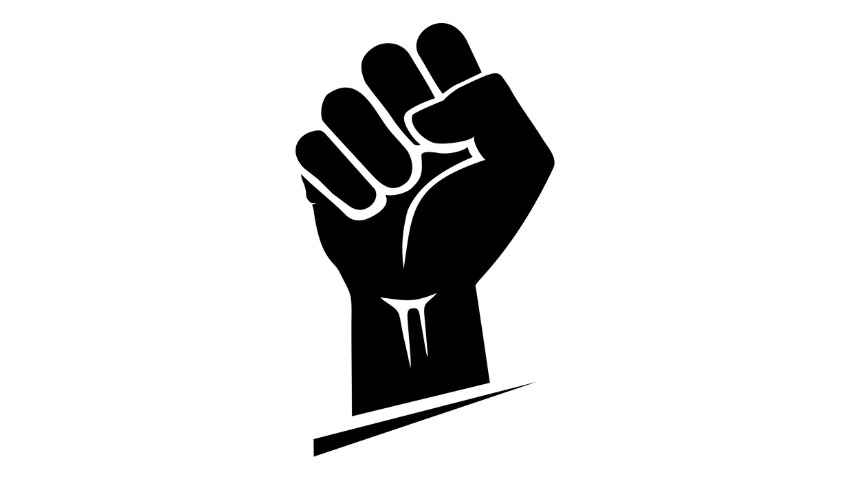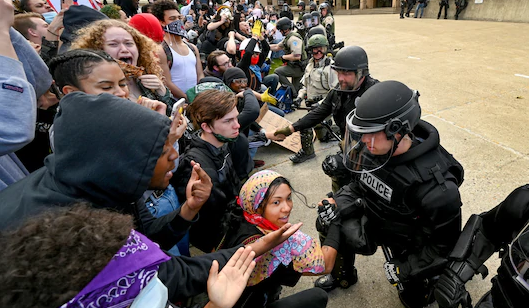Now that millions of people around the world and Cuba are showing solidarity with the Black Lives Matter (BLM) movement, following the death of African American George Floyd at the hands of a white police officer, a fact forgotten or ignored by many has resurfaced, creating controversy among those who oppose Castroism.
On November 27, 2016, two days after the death of Fidel Castro, the BLM movement paid tribute to him in a statement in which it stated: "Although no leader is free from shortcomings, we must respond to right-wing rhetoric and defend El Comandante", ending in Spanish: "Fidel vive!" (Fidel lives!)
How does someone feel about this who has suffered repression by Cuba's State Security forces for expressing ideas contrary to the regime, or for their anti-racism activism – which, according to Castroism, does not exist in Cuba? Can one sympathize with the dictator's admirers?
DIARIO DE CUBA posed this question to five black Cuban activists and artists who have suffered different degrees of repression by the regime. All five said they support the movement's claims. "Only for what the name expresses... a totally valid and pertinent declaration, I must say that I agree with the movement's outreach and great activism," says Norberto Mesa Carbonell, leader of the Confraternity of Blackness (Cofradía de la Negritud).
Activist Luis Manuel Otero Alcántara, founder of the San Isidro Movement, clarified that he stood in solidarity not just with BLM, but any organization, of any political tendency, that "defends basic human rights."
"The first right of every human being is the right to life," argued rapper and anti-racism activist Osvaldo Navarro, who supports the BLM because it demands respect for that right.
The myth that the Revolution eliminated discrimination and its impact on African-American anti-racist organizations
None of the Cubans interviewed for this report were aware of BLM's statements about Fidel Castro in 2016, but they can understand them.
Navarro believes that this is a movement that is left-leaning, and that we cannot lose sight of the fact that Fidel Castro, since the beginning of the Cuban Revolution, carried out a campaign to "convince and recruit, and forge alliances", which is why the Cuban government has had a great influence in academia and in African-American communities.
Mesa Carbonell, who also admired Castro for a long time, is hardly surprised by the BLM's homage to the deceased ruler, pointing out that many African-Americans remember how Fidel Castro articulated support for the Civil Rights Movement.
"He lent decisive support to the anti-apartheid cause; Nelson Mandela called him 'brother'; and he took young African-Americans to Cuba to study medicine," he explained. "I am not surprised that BLM has a more positive than negative view of Fidel Castro, a position where it coincides with much of current anti-racist activism in Cuba. The myth that the Revolution had eliminated racial discrimination resonated with many African-American anti-racist activist organizations."
Yanelys Núñez, an art historian and member of the San Isidro Movement, forced to seek political refuge in Spain due to the Cuban regime's oppression, agrees that the idealized image the BLM harbors of Castro is shared by most of the left, and various human rights groups, "but also of what the Revolution was, despite the fact that testimonies, documentaries (...) have revealed what is happening in Cuba."
Núñez notes that in many parts of the world people are still convinced that had it not been for "the continued aggression of the United States Government", the revolution would have turned out well. "This opinion does not surprise me, nor does it cause me to disparage what they do in the fight against racism. I simply send out a wake-up call. Whenever I communicate with other groups, I say it: 'you have to stop projecting that image, because in the end it is Cuban men and women who are suffering as a result.'"
For Juan Antonio Madrazo Luna, National Coordinator of the Citizens' Committee for Racial Integration (CIR), who endorses the demands of any American civil society organization "that protests against systemic racism and police violence in the United States", the position of Black Lives Matter in relation to Fidel Castro is no different than the position of figures like Louis Farrakhan, Jesse Jackson and activists like actor Danny Glover.
But Madrazo Luna does not attribute this only to the Cuban regime's propaganda. "For a long time Cubans on the other shore have been indifferent to the cause of the African-American political community, and this is the result of the racist notions of much of those making up the diaspora." In his opinion, this helps to explain the indifference of the Black Caucus Congress regarding the demands of anti-racist activism in Cuba, and why Cuban activists have not received the political entity's support.
Artist Otero Alcántara sees a similarity between the BLM's attitude towards Fidel Castro and those in Miami who admire Trump for supporting Cuban dissenters. "Americans say to you: 'How can you support Trump? Trump is crushing me.'"
They did not go out to demonstrate for communism, socialism, or capitalism
Regarding the possibility that expressions of support like the BLM's for Fidel Castro could be used to undermine support for the group in the Cuban and Cuban-American sphere, Mesa Carbonell states that the BLM's claims warrant solidarity for reasons of justice, which should not be determined by political motivations.
Osvaldo Navarro, however, does perceive this loss of support as possible, and reports having observed on social media, mainly Facebook, widely ranging opinions on this movement and the death of George Floyd. Madrazo, meanwhile, believes that what he has observed on the networks "in relation to the murder" of Floyd is "visceral racism."
Navarro calls on people not to forget the reason for their demands. "A human being was killed. In this case, one of African descent. Many people emerged to demonstrate, not just the BLM, and most of them peacefully, due to the death of a human being. They did not go out to demonstrate for communism, socialism, or capitalism."
Yanelys Núñez does not believe that the movement will lose support among Cuban activists because there are "many shared agendas" between activists on the island and the BLM. In her view, much can be achieved through dialogue and, by spotlighting the country's reality, the image that "the other person" has can change.
Do you want them to do that to you in your country?
Changing the BLM's perception of Fidel Castro (and that of many leftist organizations), and his revolution, can pose a challenge for the Afro-Cuban community. But Mesa Carbonell believes that a large portion of this community "is still pro-Fidel, and will not take any steps to encourage BLM to abandon its Castroist sympathies."
Otero Alcántara, meanwhile, although he states that Black Lives Matter and "all those who have a commitment to justice and the downtrodden on Earth" should publicly apologize to the Cuban people for burnishing Fidel Castro's image with their rhetoric, stresses that not engaging in dialogue with these people would generate "confrontation and the obtuse argument that 'you don't understand me, you are leftists and want to implement Communism in the United States'".
Otero Alcántara believes that Cubans of all races must strive to demonstrate that "in Cuba there was a man named Fidel Castro who was a dictator, and who had people shot."
The artist, who has suffered repression and been arrested, numerous times, for his opposition to Decree 349 (which seeks to ban independent art in Cuba) cites an example of his experience in Argentina, with "ultra-leftists".
"I said to them 'give it a rest, brother, because I can't handle this 60-year-old propaganda you have in your head. Read Article 349. Do you want them to do that to you in your country? This is what is being done to me in my country.' They would say to me 'damn, that's terrible'. When you point to the human part, there is no justification."

